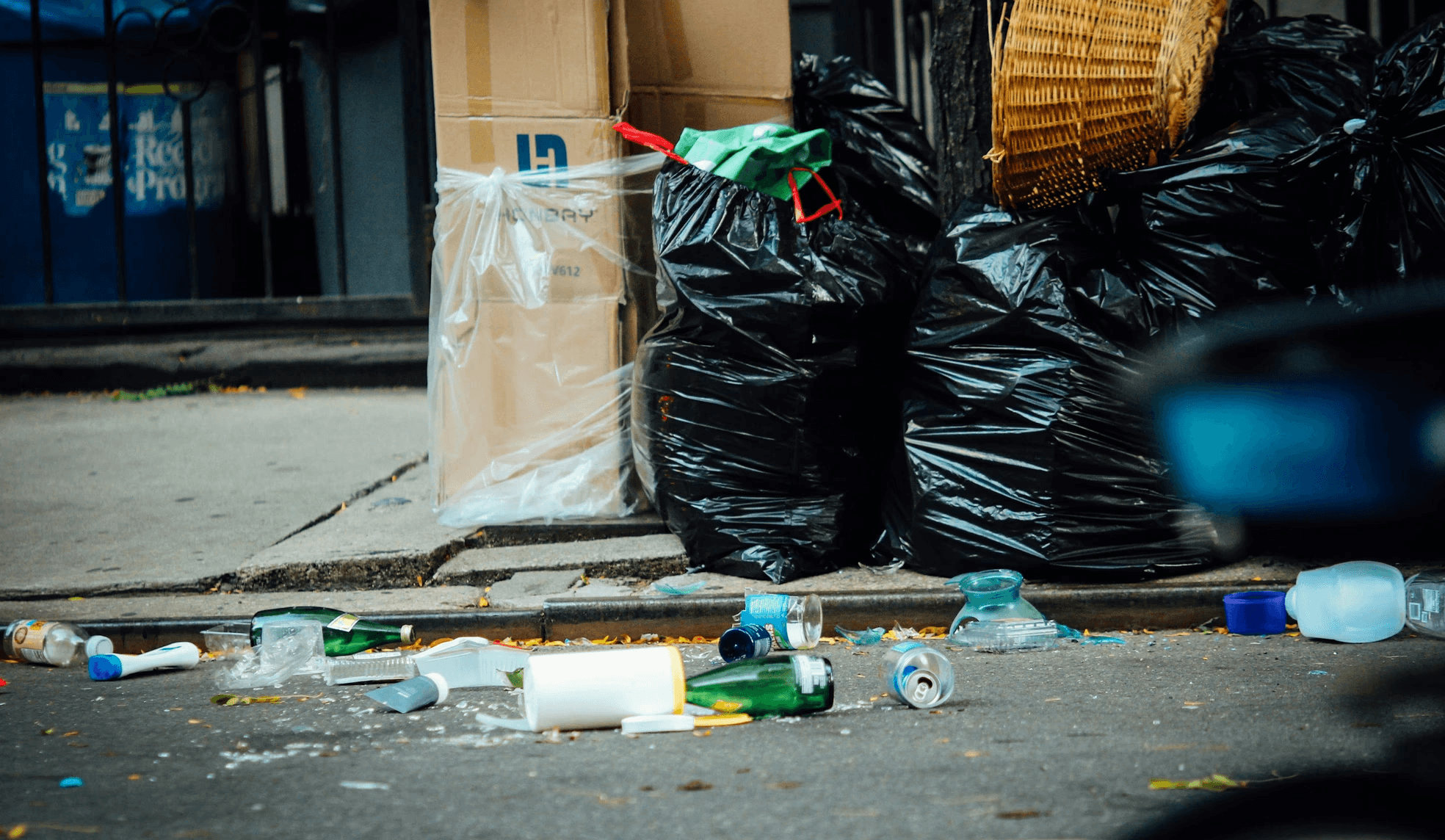The global waste crisis is reaching a tipping point, demanding innovative solutions and alternative approaches to address the mounting challenges posed by our consumption-driven society. Traditional waste management systems, often centralized and linear, are struggling to cope with the increasing volume and complexity of waste streams. This case, the second installment of our Waste Futures research series, explores the urgent need for a paradigm shift towards decentralized, circular approaches to waste management. By examining the case of disposable face masks, we demonstrate the potential for managing waste on a local scale in urban communities, creating new value chains out of products and materials that are often viewed as waste.
Waste Management Challenges: A Perfect Storm
Modern municipal waste and recycling systems, particularly in dense urban environments like New York City, are ill-equipped to handle the increasing volume and complexity of waste streams. The infrastructure, designed for a different era of consumption, is struggling to adapt to the new challenges posed by our disposable culture. This unprecedented influx of single-use, mixed-material waste, exemplified by the surge in disposable face masks during the COVID-19 pandemic, has overwhelmed recycling facilities and contributed significantly to landfill burdens. This is a microcosm of a larger problem: the rising tide of mixed-material waste that is increasingly difficult to manage and recycle effectively. A significant challenge lies in the public's misunderstanding of recyclability. Consumers often assume that items with a recycling symbol can be processed by standard recycling infrastructure. However, mixed-material products like disposable face masks pose a significant risk to recycling systems. They can clog and damage machinery, reducing the overall efficiency of recycling operations. Additionally, the complex composition of these materials makes recycling significantly more costly compared to mono-material products. Moreover, the reliance on long-haul transportation for waste disposal is unsustainable. As landfill space dwindles and environmental regulations tighten, there is a growing need for localized waste management solutions. The management of face mask waste highlights the limitations of large-scale commercial recycling and waste management systems. Factors such as equipment, funding, collection logistics, value chain development, profitability, and market demand for recycled materials create significant hurdles. To address these challenges, a localized approach is essential. By collecting, sorting, and managing face masks at the community level, it is possible to develop more efficient and sustainable recycling solutions. This approach can also help to stimulate local recycling markets, particularly as global waste management policies become more restrictive.
A New Waste Experience: Localizing the Challenge
The increasing complexities and costs associated with managing waste on a large scale necessitate a shift towards localized solutions. Urban communities, such as New York City, are grappling with limited landfill space and the environmental impacts of long-haul waste transportation. This unsustainable model is reaching a tipping point; there will come a time when exporting waste is no longer a viable option. Consequently, these communities must confront the challenge of managing waste within their own borders. For communities like those in New York City, recycling and waste management present unique challenges. The lack of conveniently placed waste and recycling bins in many public housing units exacerbates the problem. Additionally, the complexities of waste management, such as the consolidation of waste before sorting to optimize collection yield, often lead to the mixing of recyclables with regular municipal waste. This contamination further complicates recycling efforts. Despite efforts by businesses to recycle, the market for recycled materials is increasingly challenging. The demand for newer, complex recycled materials lags behind that of more common materials like HDPE and PE, making it difficult to create sustainable economic models for recycling these materials. The case of disposable face masks highlights the need for localized waste management solutions. The surge in face mask production, usage, and disposal during the COVID-19 pandemic overwhelmed traditional waste management systems, serving as a stark example of a new waste stream that can pose a significant threat to an under-prepared waste management infrastructure. This unprecedented challenge exposed the limitations of conventional approaches and underscored the urgent need for innovative solutions.
A New Waste Experience: Localizing the Challenge
What if we could transform these challenges into new design opportunities? It is clear that these emerging issues necessitate the design of innovative waste management systems tailored to specific community needs. By focusing on local collection, sorting, and upcycling, we can create more efficient and sustainable solutions. These systems can be designed to address the unique challenges faced by urban communities, such as limited space, diverse populations with varying cultural understandings of sustainability, and the complexities of waste streams, including those posed by products like disposable face masks. By shifting the focus from large-scale, centralized waste management to localized, community-driven approaches, we can unlock new possibilities for waste reduction, reuse, and recycling.
Waste Management Challenges: A Perfect Storm
The challenges posed by our current waste management systems are undeniable. The increasing volume and complexity of waste streams, coupled with the limitations of traditional infrastructure, necessitate a fundamental shift in our approach. By focusing on localized solutions, we can address the unique needs of urban communities and create more sustainable and resilient waste management systems. A shift towards decentralized waste management systems, coupled with innovative design and technological advancements, is essential for building a more sustainable future. To achieve this transformation, a fundamental shift in our design approach is required. By reimagining waste as something valuable in the product design process, we can create products with longer lifespans, reduced waste, and increased opportunities for recycling and upcycling. This approach, combined with localized waste management strategies, will be crucial in fostering a more sustainable and resilient future for our communities








